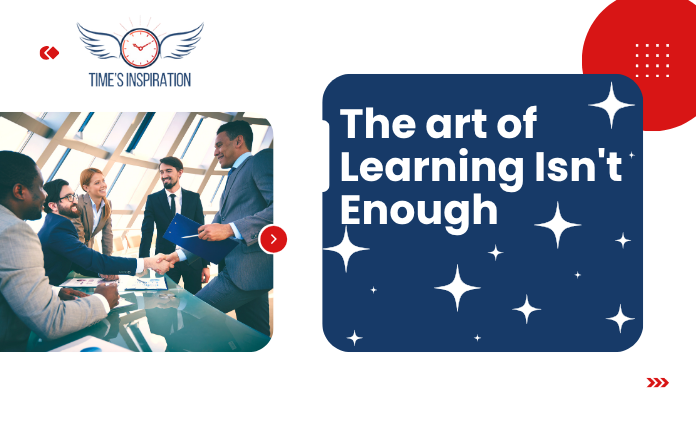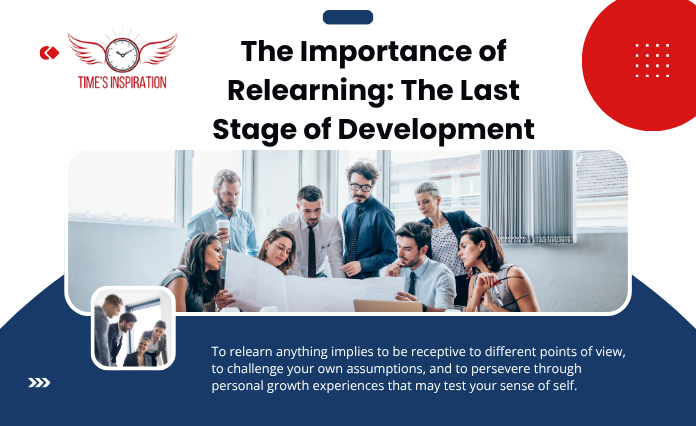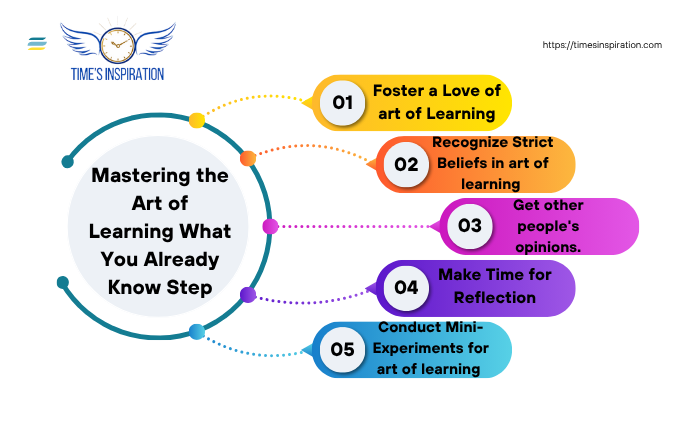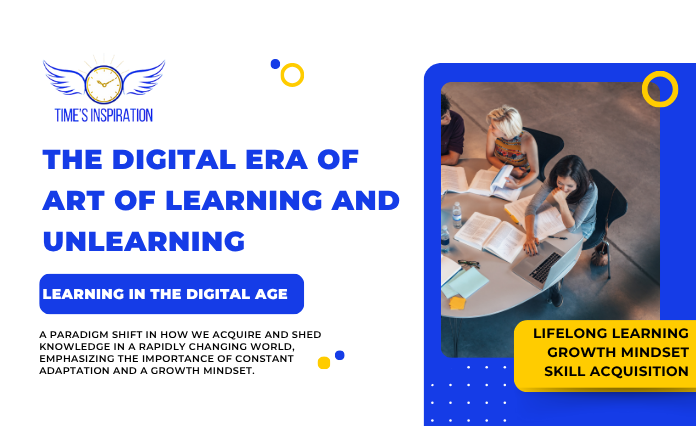The Art of Learning and Unlearning for Growth
- October 12, 2025
- 0
A Covert Aspect of Development The Art of Learning and Unlearning for Growth lifelong education is highly valued. Success beckons, so we immerse ourselves in literature, enroll in
A Covert Aspect of Development The Art of Learning and Unlearning for Growth lifelong education is highly valued. Success beckons, so we immerse ourselves in literature, enroll in

The Art of Learning and Unlearning for Growth lifelong education is highly valued. Success beckons, so we immerse ourselves in literature, enroll in classes, study how-to videos, and seek out new abilities. What if, instead than acquiring new knowledge, real progress requires releasing what you already know?
The art of unlearning—putting old beliefs into question, letting go of old habits, and making room for new—is frequently the true secret to transformation. Someone who is unable to learn, unlearn, and relearn will be considered an illiterate in the 21st century, according to Alvin Toffler.
Follow US to Know more Information about Time’s Inspiration Update:
Knowledge gained now may be useless tomorrow due to the rapid pace at which the world is evolving. We need to be adept atThe Art of Learning and Unlearning if we want to maintain our adaptability, curiosity, and agency.
The art of Learning is fundamental because it allows us to gain insight, hone our abilities, and broaden our horizons. However, knowledge overload and progress masquerading as stagnation can result from continual learning without reflection.

We miss out on exciting new opportunities when we cling too tenaciously to our past knowledge. For some reason, being right and sticking to what’s familiar are things that the human brain really desires. Change, however, necessitates pain.
Rather than confirming our preconceptions, true learning occurs when we question them.
To illustrate:
At that point, unlearning becomes the key to unlocking more profound development.
Reevaluating what is still true and valuable is what unlearning is all about, not forgetting what you know. It entails challenging assumptions, biases, and ways of thinking that don’t serve you or your future.
Imagine your thoughts as a garden. Gaining knowledge sows new seeds. The weeds that hinder progress can be pulled out by unlearning. No seed, no matter how good, will grow without regular weeding.
We benefit from unlearning:
Difficulty is high. It takes guts to unlearn something strongly held because it may no longer benefit us.
The brain is malleable, according to neuroscience, so it may alter, adapt, and create new connections all through life. Our ability to learn new things and, more significantly, to unlearn old habits depends on this mechanism, which is known as neuroplasticity.
With each thought and practice, a new brain pathway is formed. It gets stronger the more we say it. When we consciously take steps to weaken old pathways and strengthen new ones, we are engaging in unlearning.
If you’ve told yourself over and over that you’re “bad at public speaking,” for instance, your brain will eventually start to believe it. A new connection can be formed by repeatedly engaging in little, good experiences, such as raising your hand in meetings: “I’m becoming more confident.”
Rewiring your emotional and behavioral responses is what unlearning is all about, not erasing memories.
Replacing outmoded ideas with more empowering ones is the next step after unlearning.

That’s what makes it possible for an experienced expert to learn new software, for a teacher to revise their approach, or for a leader to substitute empathy for authority.
What happens when we relearn is that we adapt, rather than losing our identity.
Rather than gaining additional information, a shift in viewpoint is what drives progress in every instance.
The act of unlearning forces us to confront our three deepest fears:
Egos prevent us from considering the possibility that our previous practices were flawed. The path to change, however, begins with humility.
Even when it constrains us, the familiar is a source of safety for us. We fear change, but we’re really more afraid of staying still.
What we’ve learnt might become an integral part of who we are at times. We feel like we’re losing a piece of ourselves when we let go. However, unlearning really grows rather than shrinks.
To grow is to grant oneself permission to change into a different version of oneself.

The remedy for inflexibility is curiosity. Do not presume to know; instead, inquire:
An open mind expands infinitely, whereas a closed one remains immobile.
Any limiting views you may have regarding your abilities, relationships, or achievement should be written down. Finally, give each one a go. Inquire, “Is this truly accurate?”
In many cases, the obstacles are based on unquestioned, deeply held beliefs rather than actual facts.
Put yourself in the shoes of those who think differently and try new things. Diversity fosters growth. You can expand your mind by listening to other people’s perspectives.
Embrace the practice of self-reflection. You might become more aware of habitual, outmoded ways of thinking through practices like journaling or meditation.
Make small steps to make a big difference. Say yes to an opportunity once a week or break a habit for a little while every week to push yourself out of your comfort zone.
The groundwork for major change is laid by courageous little deeds.
The art of Learning to unlearn isn’t merely a cerebral process; it’s also an emotional one. When we have high emotional intelligence (EQ), we are better able to deal with the stress that changes bring.
We may retrain our brains to behave in more constructive ways by increasing our capacity for self-awareness, empathy, and emotional regulation.
An emotionally intelligent person, rather than losing their cool in the face of criticism, takes a moment to collect their thoughts and figure out how to use them in the future. Better decision-making and stronger relationships are the results of this change.
Modernity has accelerated the rate of knowledge evolution. The most innovative abilities from even just five years ago might already be considered antiquated.

Because of this, the most successful individuals are adept learners who can adjust to new situations. They are savvy enough to recognize when to accept change and when to hold on to the past.
Adaptability is now a great asset in today’s world, whether one is dealing with new technologies, different leadership styles, or changes on a global scale.
The processes of art of learning and unlearning are continuous, rather than final, goals. As you progress in life, you come to appreciate just how much more there is to discover, investigate, and perfect.
You develop into a stronger, more self-aware person when you commit to the learning, unlearning, and relearning cycle.
Personal development isn’t about taking on a new identity; rather, it’s about rediscovering your true calling.
Unlearning may be the most courageous act one can do in a knowledge-based society.
True growth comes from being open to new possibilities and letting go of what doesn’t work anymore, such as old ideas, falsehoods, and restricting myths.
Therefore, when faced with life’s challenges to your “knowledge,” don’t fight them. Put it down. Think on it. Determine the lesson it is trying to teach you.
Letting go is often more important than adding more when it comes to becoming your greatest self.
Subscribe Now